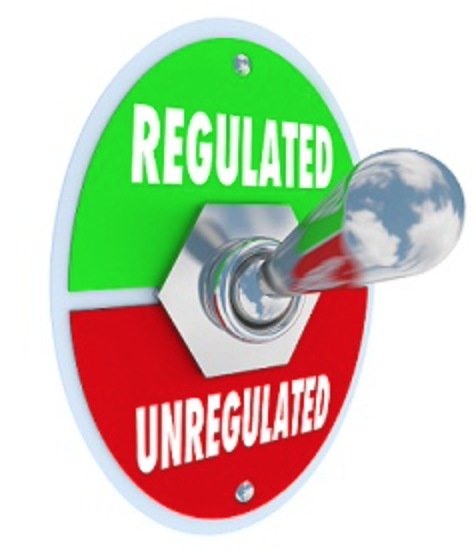Are Self-Employed Carers Truly Unregulated?
Although many self-employed carers see themselves as unregulated, as they are not officially answerable under the remit of The Care Quality Commission (CQC), this is not actually the case. There are many steps in place to ensure the safety of both self-employed carers and their clients. In this blog we will look at what safeguarding measures are in place, and the procedures for when a complaint is made against a self-employed carer.
The Care Quality Commission
The Care Quality Commission is the independent regulator of health and social care services in England. The CQC primarily oversees and regulates registered health and social care providers, such as care homes, hospitals, and home care agencies. While the CQC does not directly regulate self-employed carers, it has a role in overseeing and regulating the agencies that provide care services. These agencies are responsible for ensuring that the carers they employ meet certain standards and comply with regulations. The CQC conducts inspections and audits of these agencies to assess their compliance. However, if the CQC is not the relevant organisation to investigate the complaint, then all local councils have a Safeguarding Adults Board who can.
The Local Council Safeguarding Adults Board
Your local council’s Safeguarding Adults Board (SAB) is a statutory body, made up of other organisations that work together at a strategic level, to ensure that adults at risk in that area can live life free from abuse, neglect, and exploitation.
When a complaint is made about a self-employed carer to the local council Safeguarding Adults Board, the board will typically follow a specific process to address the complaint and ensure the safety and well-being of the individuals involved. However, the exact procedures and processes may vary slightly depending on the specific policies and guidelines of whatever local council Safeguarding Adults Board is investigating.
7 Steps taken by the Safeguarding Adults Board
- Receipt of the Complaint: The Safeguarding Adults Board will receive the complaint regarding the self-employed carer. The complaint can come from various sources, such as the person receiving care, their family members, friends, or concerned individuals.
- Initial Assessment: The SAB will conduct an initial assessment of the complaint to determine its credibility and seriousness. They will consider factors such as the nature of the complaint, the potential risk to the individual, and any supporting evidence provided.
- Investigation: If the complaint is deemed credible and serious, an investigation will be initiated. The board may assign an investigator or work with relevant agencies to gather information and evidence related to the complaint. This may involve interviewing the person making the complaint, the self-employed carer, and any other relevant individuals ie the family, or other healthcare professionals working with the client and their family.
- Collaboration with Other Agencies: The Safeguarding Adults Board may collaborate with other relevant agencies, such as social services, health services, or the police, depending on the nature of the complaint. This collaboration ensures a comprehensive assessment of the situation and appropriate actions if necessary.
- Risk Assessment: The SAB will conduct a risk assessment to evaluate the potential harm or risk posed to the individual. This assessment helps in determining the level of intervention required and the appropriate steps to mitigate any immediate or future risks.
- Support and Protection: If the investigation confirms any form of abuse, neglect, or harm, the Safeguarding Adults Board will take steps to protect the individual. This may involve providing support services, arranging alternative care arrangements, involving other professionals, or implementing protective measures.
- Outcome and Reporting: Following the investigation, the Safeguarding Adults Board will reach a conclusion based on the evidence gathered. The outcome may include disciplinary actions, legal interventions, recommendations for improvement, or referrals to other relevant bodies. The SAB will also maintain records and may produce a report outlining the investigation process and its findings.
PocketCarer Provides Record Keeping Templates and Advice
PocketCarer provides self-employed carers with templates and advice on how to keep up to date and relevant records for all clients. Read our helpful blog article here on record keeping; what templates and forms PocketCarer provides; what sort of information you should be taking, and why it is important for the self-employed carer, as well as your clients, to have these records.
Protect Yourself with PocketCarer
If a complaint is made, and an investigation launched, then by keeping up to date records, you will have everything you need to provide if asked. Additionally, by subscribing to PocketCarer, you are able to store records on our secure cloud. Remember the old adage; “If it’s not written down, it didn’t happen!” Having a reliable and safe way to store records offers both protection and reassurance to you, your clients, and their families. Sign up here for a free trial with PocketCarer today.
Download the PocketCarer app FREE today




